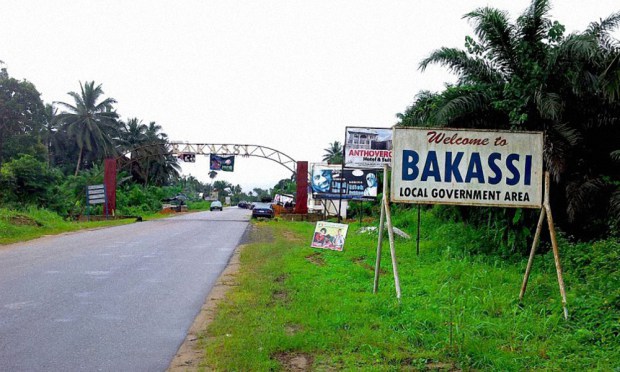
• INEC insists law not binding
Conflicting interpretations are trailing the Supreme Court’s verdict on the new wards created by the Cross Rivers State government to ensure that the remnants of Bakassi are not disenfranchised.
The Independent National Electoral Commission (INEC) declared that the court did not permit election to be conducted in the three new Ikang wards of Bakassi as created by Law Number 7, 2007 of the state.
INEC said that the apex court, in its judgment, had rather set aside the state law, thereby rendering it null and void.
But this interpretation is not going down well with the state government, which is alleging that some persons must have read the judgment upside down.
To the state government, what the judgment says is that INEC should do the needful by ensuring that the people of Bakassi participate in elections.
The national electoral body had disallowed election in the wards created by the state from Akpabuyo Local Government Area as new wards under the New Bakassi, following the ceding of the main Bakassi to Cameroon in 2007.
The ceding caused the people of Bakassi in Nigeria to be left with reduced population and land mass, hence the state created three new wards from Ikang to make up the new Bakassi.
INEC had argued that the new wards under New Bakassi were unconstitutional hence no election could take place there except under Akpabuyo. The commission claimed no House of Assembly has the constitutional power to create, alter or delineate state constituency and compel the electoral body to obey the same.
Not pleased with this stand, the state government, through some people of Bakassi, took INEC to the Federal High Court in Calabar seven years ago and won. INEC contested the verdict at the Appeal Court and also lost. The commission proceeded to the Supreme Court and won.
Though the apex court recognised the fact that states have powers to adjust boundaries between local governments within a state for the purposes of development, it said the adjustment could not be for elections, therefore, the commission could not be compelled to obey the Law No. 7 of Cross River State.
Making a clarification on the matter in Calabar at the weekend, the Resident Electoral Commissioner, Dr. Frankland Briyai said: “The state cannot delineate for INEC or the Federal Government as this is the exclusive right of the National Assembly and the Supreme Court in the last paragraph of its judgment set aside Law Number 7 of the Cross River State.
“By implication, the law is null and void. INEC cannot do election in Bakassi as it affects the newly created wards based on the Supreme Court judgment, however, I will await directives from the headquarters. The reports in the media are misleading, people should get the copy of the judgment and read.”
A former REC in the state, Mr. Mike Igini, who was joined in the matter, said:
‘The order of the Court of Appeal that the appellants should obey Cross River State Law No.7 of 2007 and conduct its election and register voters based on state constituencies created by it was set aside. So all those aberrations of making three wards of lkang as part of Bakassi and even changing the original ancestral names, different from what we have in our Atlas and Directory of our remuneration areas or wards are unconstitutional as affirmed by the Supreme Court and so have no effect.”
Igini said INEC formulated two issues which were resolved in favour of the commission when the Supreme Court declared: “Having resolved the two issues in favour of the appellants, this appeal succeeds and is hereby allowed. The judgment of the Court of Appeal, Calabar delivered on the 6th of December, 2013 is hereby set aside”
Igini noted that the lead judgment delivered by Justice Iyang Okoro merely said on page 13 that it counselled and not compelled or directed the commission to ensure that Bakassi people have political representation by exercising its powers under sections 112, 113 and 114 of the 1999 constitution. According to him, this has been done by INEC by the re-delineation of the un-ceded part of Bakassi in the Dayspring before the 2011 election where the people have been registering and voting.
But the Cross Rivers State Attorney General and Commissioner for Justice, Mr. Joe Abang, did not seem to agree with Briyai and Igini on their interpretation of the verdict.
When contacted on the claim that the court set aside the Law Number 7, the commissioner said: “Did you read it (judgement) upside down? Today is a Sunday and I am coming back from church with my family, I don’t want to be dragged into that, I will call you back.” He did not call back at the time of filling this report.
[related ids=”579715″]
A former member of the House of Assembly, Mr. Dominic Aqua, who is from Ikang, said INEC misinterpreted the judgment. He insisted that the verdict validated the Law number 7 and directed all authorities, including INEC, to recognise it
Another indigene of the area, who is the special adviser to the governor on Inter-Party matters, Mr. Austin Ibok said the judgment was in favour of both sides.
A senior lawyer in the state, Mr. Ozinko Ozinko said: “The law is very clear on the matter but some people interpret it to suit their whims and caprices.
“Bakassi is still part of local governments that form Cross River State under the 5th schedule of the constitution and the map of Cross River State has not changed by any judgment as regards the issue at hand.”
[ad unit=2]



